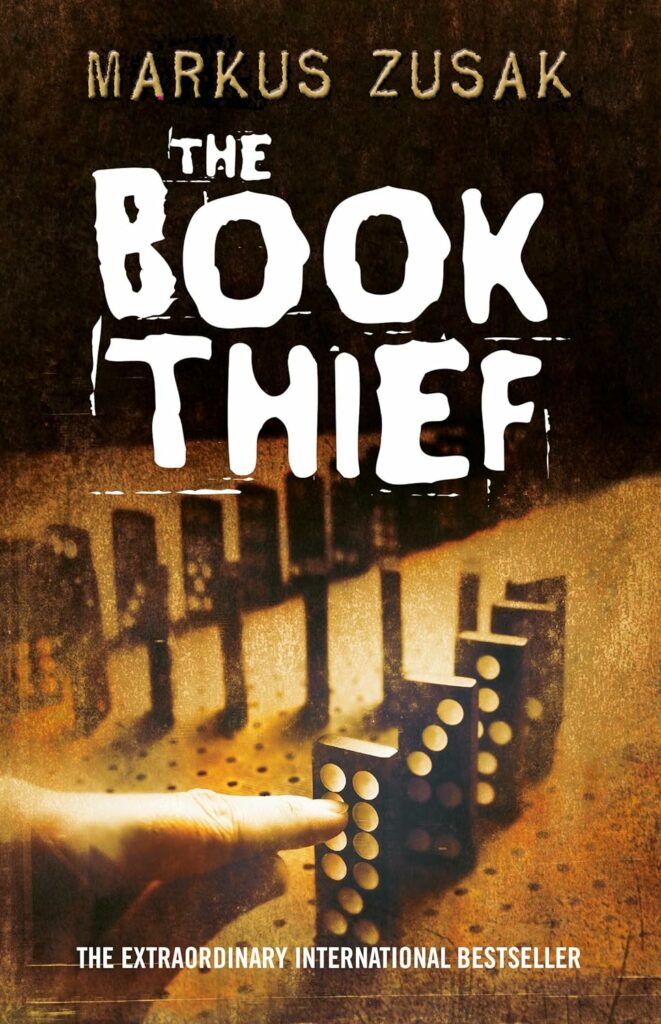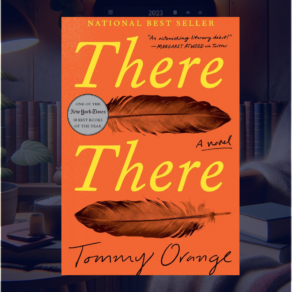I have something special for fans of historical fiction: “The Book Thief” by Markus Zusak. This remarkable novel, set against the grim backdrop of Nazi Germany, is a testament to the power of words and the resilience of the human heart. The purpose of this post is to familiarize you with the core of this beloved story, its memorable characters, and the profound themes it explores, all without giving away any spoilers that could mar your reading experience.
My discussion will proceed as follows: First, I’ll provide an extended summary of the novel, offering a glimpse into the life of Liesel Meminger and her journey with words and books in a time of war. Next, I’ll delve into the key characters who populate Liesel’s world, each bringing their own stories of courage, love, and survival.
To wrap up, I’ll offer some thought-provoking book club questions designed to spark in-depth conversations about the novel’s themes, characters, and the remarkable narrative style of Zusak.
The Book Thief Summary
“The Book Thief,” authored by Markus Zusak, is a profound narrative set against the backdrop of Nazi Germany, starting in 1939. This tale is uniquely narrated by Death, who introduces us to Liesel Meminger, a young girl placed in the care of foster parents, Hans and Rosa Hubermann, in a town near Munich. Liesel’s life is transformed by two key discoveries: the power of words and the profound impact of books.
Liesel’s journey begins with the loss of her brother and her subsequent separation from her mother, events that lead her to the Hubermanns’ doorstep with a heavy heart and an unsettling void. Her initial act of book thievery occurs during her brother’s burial, where she impulsively steals a book dropped by a gravedigger. This act, born out of grief and confusion, marks the beginning of Liesel’s love affair with words.
Under the gentle guidance of her accordion-playing foster father, Hans, Liesel learns to read, and her appetite for books grows insatiable. Her thefts become more frequent, fueled by her hunger for the stories and knowledge that books provide. The narrative also intricately weaves in the lives of the Hubermanns’ neighbors and the Jewish man, Max Vandenburg, whom they hide in their basement. Max’s presence adds a layer of tension and moral complexity to the story, as well as a deep, personal connection for Liesel, with whom he shares a love for words and stories.
Photo: Amazon
Through Liesel’s eyes, we witness the harrowing effects of the Nazi regime, the poverty and fear experienced by ordinary Germans, and the flickers of rebellion in the form of book thefts and the sharing of stories. These acts of defiance, small as they may be, symbolize resistance against the oppressive power of the regime and the hope that words and compassion can offer in times of despair.
Liesel’s relationships with the colorful characters around her, including her best friend Rudy Steiner, her stern yet caring foster mother Rosa, and the tragically beautiful soul of Max Vandenburg, deeply enrich the narrative. Each character is vividly drawn, with their flaws, strengths, and struggles, contributing to the tapestry of this story about the endurance of the human spirit.
As the war intensifies, the small town near Munich faces bombings, scarcity, and loss. Liesel’s world is irrevocably changed by these events, but her growth into a courageous and compassionate young woman, who finds solace and strength in her stolen books, remains a testament to the resilience of the human heart.
Related: Beloved Toni Morrison Summary
The Book Thief Characters
“The Book Thief” features a cast of richly developed characters. Here are some of the central characters:
- Liesel Meminger: The protagonist, Liesel is a young girl with a passion for words and books, which she steals to satisfy her hunger for reading. Her experiences of loss, love, and the power of storytelling are central to the novel. Through her eyes, readers experience the events of the story.
- Hans Hubermann: Liesel’s accordion-playing foster father, Hans is a kind-hearted and gentle man who teaches Liesel how to read. His compassionate actions and moral integrity make him a pillar of support and love in Liesel’s life.
- Rosa Hubermann: Liesel’s foster mother, Rosa, initially appears stern and harsh, but her deep love for her family is evident. Despite her tough exterior, Rosa’s care for Liesel and the Jewish man hiding in their home reveals her profound capacity for love and sacrifice.
- Max Vandenburg: A Jewish man who hides in the Hubermanns’ basement. His friendship with Liesel becomes a central part of the story, as they share their love for words and stories. Max’s presence in the Hubermann household is a constant risk, but it also brings a profound human connection.
- Rudy Steiner: Liesel’s best friend and neighbor, Rudy is known for his rebellious spirit and his deep, unrequited love for Liesel. His acts of defiance against the Nazi regime and his loyalty to Liesel are significant throughout the narrative.
- Ilsa Hermann: The mayor’s wife, who suffers from the loss of her own son, forms a unique bond with Liesel. She recognizes Liesel’s love for books and allows her to read in her library. This relationship provides Liesel with access to more books and represents a form of silent rebellion against the regime.
- Death: The narrator of the story, Death, provides a unique perspective on the events unfolding in the human world. Death’s reflections on humanity, war, and suffering add depth and poignancy to the narrative. Despite its grim role, Death is portrayed with a sense of empathy and curiosity about humans.
The Book Thief Book Club Questions
Here are some thought-provoking questions designed to explore the themes, characters, and narrative style of the book:
- Narrative Voice and Perspective: What effect does having Death as the narrator have on your reading experience? How does this choice impact your perception of the characters and events in the novel?
- Themes of War and Humanity: “The Book Thief” is set against the backdrop of Nazi Germany. How do the characters’ experiences reflect the broader themes of human suffering and resilience during war? Discuss how Zusak uses these characters to explore the complexity of human nature.
- The Power of Words and Stories: Liesel’s life is transformed by her discovery of books and reading. Discuss how words and stories hold power in the novel, both as a means of escape and resistance. How do the characters use words to exert influence, forge connections, and survive?
- Liesel’s Growth and Development: How does Liesel change from the beginning to the end of the novel? Consider her relationships, understanding of the world, and sense of identity. What are the key moments that drive her development?
- Moral Choices and Survival: Many characters in “The Book Thief,” including Hans, Rosa, and Max, make difficult moral choices. Discuss the ethical dilemmas they face and how they navigate these challenges. What do their choices reveal about their characters?
- Friendship and Love: Explore the different forms of love and friendship in the novel, such as Liesel’s relationships with Rudy, Max, and the Hubermanns. How do these relationships influence Liesel’s actions and growth? What do they reveal about the nature of love and friendship during difficult times?
- Symbolism of Books and Stealing: Liesel is known as the book thief, and her acts of stealing books are a form of rebellion. Discuss the symbolism of books in the novel and how the act of stealing them serves multiple purposes for Liesel and others in the community.
- The Impact of Loss: Every character in the novel experiences loss in some form. Discuss how the theme of loss is portrayed and its impact on the characters. How do they cope with their grief, and what does it reveal about their resilience?
- Death’s Perspective on Humanity: Death, as the narrator, often reflects on the nature of humanity and its capacity for both beauty and cruelty. Share your thoughts on Death’s observations and the questions they raise about life, death, and human nature.
- The Ending: Without giving anything away, discuss your reactions to the novel’s ending. Were there any moments that surprised you or changed your understanding of the story or its characters? How does the ending reflect the themes of the book?
Related: The Scarlet Letter Summary
Final thoughts
To conclude, I hope that you have found this short review of “The Book Thief” interesting and enlightening. This novel is a profound exploration of the human capacity for both kindness and cruelty, and the transformative power of words and stories. If you have not already immersed yourself in the world of Liesel Meminger, her love for books, and her journey amidst the backdrop of Nazi Germany, I highly recommend that you do.









